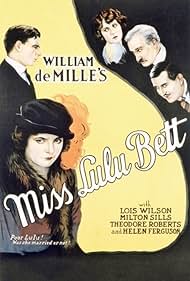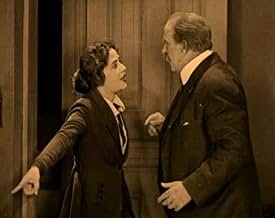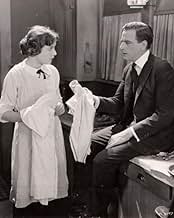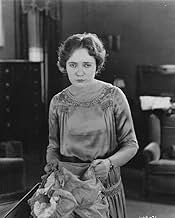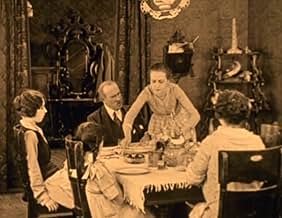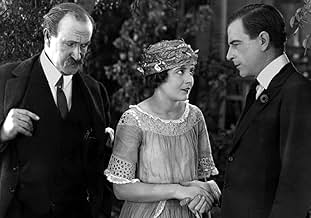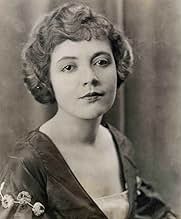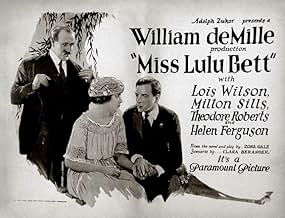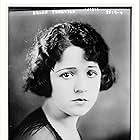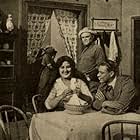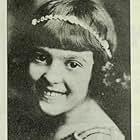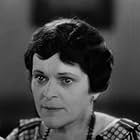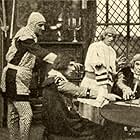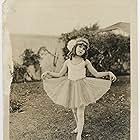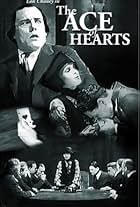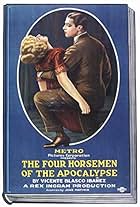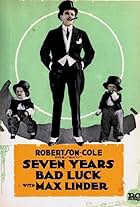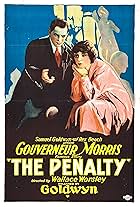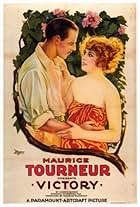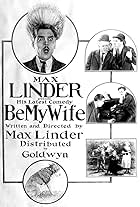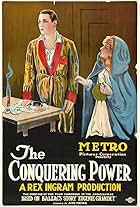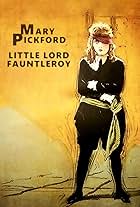Adicionar um enredo no seu idiomaA once-timid young woman gains newfound confidence after a failed marriage, much to the chagrin of her miserable family.A once-timid young woman gains newfound confidence after a failed marriage, much to the chagrin of her miserable family.A once-timid young woman gains newfound confidence after a failed marriage, much to the chagrin of her miserable family.
- Direção
- Roteiristas
- Artistas
- Prêmios
- 2 vitórias no total
Mae Giraci
- Monona Deacon
- (as May Giraci)
Peaches Jackson
- Child
- (não creditado)
Carrie Clark Ward
- Gossip
- (não creditado)
- Direção
- Roteiristas
- Elenco e equipe completos
- Produção, bilheteria e muito mais no IMDbPro
Avaliações em destaque
Lulu Bett and her mother live with Lulu's sister Ina and her husband Dwight Deacon, along with the Deacon's two daughters. Lulu cooks, cleans, and is treated like a doormat by the family. When Deacon's brother Ninian arrives in town, he takes an interest in Lulu. Dwight, Ina, Lulu and Ninian go out for a night on the town, during which Lulu and Ninian jokingly exchange wedding vows over dinner. But Dwight, being a Justice of the Peace, tells them that their civil ceremony is legal, and that they are indeed married. The couple decide to try out marriage, but Lulu soon discovers Ninian was married before, and his wife ran off. She returns home, and again is treated as a second-class citizen. Neil Cornish, the town's schoolteacher, begins to fall for her. Lulu talks her young niece out of eloping. In so doing, Lulu slowly begins to assert herself.
This is a simple but engaging film, with a charming performance by Wilson. In the early scenes, she appears plain, unattractive, and timid. You keep waiting for her to explode at all the ingrates around here. As the film progresses, she blossoms, and by the climax, it is a hoot watching her manhandle Theodore Roberts:
Speaking of Roberts, he chomps his ever-present cigar, which makes me think the only film in which he doesn't do this is "The Ten Commandments" ... unless I missed that scene on Mt. Sinai where Moses has a smoke. Sills isn't in the film very much, and the final scene with him and Wilson is extremely corny.
The film was based upon a novel of the same name, by Zona Gale. Gale adapted her novel into a play, earning her the 1921 Pulitzer Prize for drama, the first woman to receive such an award. The film follows the novel pretty faithfully, although in the book, Neil Cornish is a piano salesman and not a teacher. Also, the novel's ending is more true to life, and not the silly ending displayed in the film.
This is a simple but engaging film, with a charming performance by Wilson. In the early scenes, she appears plain, unattractive, and timid. You keep waiting for her to explode at all the ingrates around here. As the film progresses, she blossoms, and by the climax, it is a hoot watching her manhandle Theodore Roberts:
Speaking of Roberts, he chomps his ever-present cigar, which makes me think the only film in which he doesn't do this is "The Ten Commandments" ... unless I missed that scene on Mt. Sinai where Moses has a smoke. Sills isn't in the film very much, and the final scene with him and Wilson is extremely corny.
The film was based upon a novel of the same name, by Zona Gale. Gale adapted her novel into a play, earning her the 1921 Pulitzer Prize for drama, the first woman to receive such an award. The film follows the novel pretty faithfully, although in the book, Neil Cornish is a piano salesman and not a teacher. Also, the novel's ending is more true to life, and not the silly ending displayed in the film.
Lois Wilson (as Lulu) is the spinsterish member of the Deacon family: "The family beast of burden, whose timid soul has failed to break the bonds of family servitude." Her brother-in-law is patriarchal Theodore Roberts (as Dwight Deacon); running the house with an iron fist, he is both a dentist and a Justice of the Peace. As the latter, he accidentally marries Ms. Wilson to his visiting brother Clarence Burton (as Ninian Deacon) while they are out for dinner. Schoolteacher Milton Sills (as Neil Cornish) is also interested in Wilson; though, curiously, nobody seems to notice this for the longest time. Ethel Wales tries, unsuccessfully, to look old enough to play the family grandmother...
Lois Wilson's fine acting ability is clearly evident; at different times, she is like both Lillian Gish and Bette Davis - see, for example the scene where she "lets her hair down" upon meeting Mr. Burton (Gish), and her confrontation, finally, with Mr. Roberts (Davis). The story is ambitious: "Lulu Bett" and the other members of the Deacon household are clearly being controlled by the "Master" Deacon; and, "Lulu" is practically a slave. Yet, the various characters are shells of something larger - and their shells are not filled with enough characterization, background, or motivation to make this movie really work.
Notable as directed by Cecil's brother William deMille.
***** Miss Lulu Bett (11/13/21) William C. de Mille ~ Lois Wilson, Theodore Roberts, Milton Sills
Lois Wilson's fine acting ability is clearly evident; at different times, she is like both Lillian Gish and Bette Davis - see, for example the scene where she "lets her hair down" upon meeting Mr. Burton (Gish), and her confrontation, finally, with Mr. Roberts (Davis). The story is ambitious: "Lulu Bett" and the other members of the Deacon household are clearly being controlled by the "Master" Deacon; and, "Lulu" is practically a slave. Yet, the various characters are shells of something larger - and their shells are not filled with enough characterization, background, or motivation to make this movie really work.
Notable as directed by Cecil's brother William deMille.
***** Miss Lulu Bett (11/13/21) William C. de Mille ~ Lois Wilson, Theodore Roberts, Milton Sills
We may never know exactly how good or bad a director William C. de Mille was. Only a handful of his films survive and only one of the surviving films, "Miss Lulu Bett", is revived with any regularity. But if a director is going to be known by one film, he or she could do much worse than "Miss Lulu Bett."
The film is a fine example of film-making on a small scale. Little touches remind audiences of the simple beauties of the moving image art form. There is the image of the lonesome and shy Lulu (played by Lois Wilson)unfurling her hair on a staircase. There is the image of Lulu and her lover Neil Cornish (Milton Stills) talking under a bower strewn with flowers. These images of delicate beauty show what carefully chosen props and settings can do to make a film with a modest budget look classy.
The story is interesting and it is not as old fashioned as some on-line reviewers have suggested. Lulu is not physically abused or held in captivity. She is abused psychologically by her overbearing brother-in-law, and her captivity is a matter of economics: she simply has no money to live on her own. The belittling of women and economic inequalities are still important issues for women.
Some people may object to certain stylistic qualities of "Miss Lulu Bett". The film has a fast enough pace, but much of the story is told through title cards. I presume that the overuse of language is a hold-over from literature: "Miss Lulu Bett" was originally a popular stage play and novel. These title cards, however, are pithy and straight-forward; they never seem to interfere with the pace of the film in any way. Film critics who ignore the device in silent films may want to watch "Miss Lulu Bett" as an example of title cards used well.
In all, "Miss Lulu Bett" is a fine drama about a female survivor of abuse. The artistry is touching and low-key, but captivating all the same. It is truly a fine work from William C. de Mille, a director whose career is now almost erased from film history.
The film is a fine example of film-making on a small scale. Little touches remind audiences of the simple beauties of the moving image art form. There is the image of the lonesome and shy Lulu (played by Lois Wilson)unfurling her hair on a staircase. There is the image of Lulu and her lover Neil Cornish (Milton Stills) talking under a bower strewn with flowers. These images of delicate beauty show what carefully chosen props and settings can do to make a film with a modest budget look classy.
The story is interesting and it is not as old fashioned as some on-line reviewers have suggested. Lulu is not physically abused or held in captivity. She is abused psychologically by her overbearing brother-in-law, and her captivity is a matter of economics: she simply has no money to live on her own. The belittling of women and economic inequalities are still important issues for women.
Some people may object to certain stylistic qualities of "Miss Lulu Bett". The film has a fast enough pace, but much of the story is told through title cards. I presume that the overuse of language is a hold-over from literature: "Miss Lulu Bett" was originally a popular stage play and novel. These title cards, however, are pithy and straight-forward; they never seem to interfere with the pace of the film in any way. Film critics who ignore the device in silent films may want to watch "Miss Lulu Bett" as an example of title cards used well.
In all, "Miss Lulu Bett" is a fine drama about a female survivor of abuse. The artistry is touching and low-key, but captivating all the same. It is truly a fine work from William C. de Mille, a director whose career is now almost erased from film history.
Wlliam deMille produced and directed Miss Lulu Bett, a film of extraordinary conviction and insight. It was then often the custom for unmarried women to lodge with family; thus we discover Miss Lulu in a boring Midwestern town, an exploited household drudge for her sister and her overbearing brother-in-law.
All I have to say about this film is that if you have the ability to see it with a soundtrack, or better yet a live organ, do that. Unfortunately for me, the copy I saw was without sound of any kind which made the viewing experience tedious. The rating would be higher, probably, except that it is hard to judge a film I thought was difficult to enjoy.
All I have to say about this film is that if you have the ability to see it with a soundtrack, or better yet a live organ, do that. Unfortunately for me, the copy I saw was without sound of any kind which made the viewing experience tedious. The rating would be higher, probably, except that it is hard to judge a film I thought was difficult to enjoy.
A year after women in the United States gained the right to vote through the passage and ratification of the 19th Amendment, Hollywood finally portrayed their newfound confidence of independence in William deMille's November 1921 "Miss Lulu Bett."
Through decades of women's suffrage battles where women simply wanted the same rights as their male counterparts, the law giving women civil and political freedoms was passed in August 1920. "Miss Lulu Bett" serves as a microcosm of the suffrages battles. Most women were dependent on the male heads of the households. With the passing of the amendment millions of nominally disadvantaged females finally unshackled their metaphorical chains for freedom and independence with growing confidence.
DeMille's adapted Zona Gale's novel and her 1920 Pulitzer Prize play to reflect those changing times for women who sought newfound opportunities once denied them.
Lulu Betts, played by Lois Wilson, is the timid sister of the wife whose abusive husband uses her as a domestic servant to the household. Her outside job openings are non-existent in the small midwestern town she lives. When she discovers that the quickie marriage to a family friend is a polygamist, she returns to her sister's stifling home. A confrontation between her and her brother-in-law in a misunderstanding that quickly escalates to a life-changing decision, Lulu is bold enough to make a decision to take a path that normally wouldn't be open to her.
The older brother of Cecil B. DeMille, William was a successful film director in his own right. In the early 1900's, deMille, who changed his last name to the lower case "d" to fit into the theatre marques, was a Broadway playwright, including 'The Warrens of Virginia.' He followed his younger brother to Hollywood, directing his debut movie in 1914's 'The Only Son.' His specialty was adapting Broadway plays onto film.
William was a member in prominent Hollywood circles later in his life, co-hosting the first Academy Award ceremonies with Douglas Fairbanks in 1928 while being solo host to the awards the following year. He had also briefly served as president of the Academy of Motion Picture Arts and Sciences. Of all this films he directed, "Miss Lulu Bett" has been cited as his best movie and his most visible work for today's viewers.
Through decades of women's suffrage battles where women simply wanted the same rights as their male counterparts, the law giving women civil and political freedoms was passed in August 1920. "Miss Lulu Bett" serves as a microcosm of the suffrages battles. Most women were dependent on the male heads of the households. With the passing of the amendment millions of nominally disadvantaged females finally unshackled their metaphorical chains for freedom and independence with growing confidence.
DeMille's adapted Zona Gale's novel and her 1920 Pulitzer Prize play to reflect those changing times for women who sought newfound opportunities once denied them.
Lulu Betts, played by Lois Wilson, is the timid sister of the wife whose abusive husband uses her as a domestic servant to the household. Her outside job openings are non-existent in the small midwestern town she lives. When she discovers that the quickie marriage to a family friend is a polygamist, she returns to her sister's stifling home. A confrontation between her and her brother-in-law in a misunderstanding that quickly escalates to a life-changing decision, Lulu is bold enough to make a decision to take a path that normally wouldn't be open to her.
The older brother of Cecil B. DeMille, William was a successful film director in his own right. In the early 1900's, deMille, who changed his last name to the lower case "d" to fit into the theatre marques, was a Broadway playwright, including 'The Warrens of Virginia.' He followed his younger brother to Hollywood, directing his debut movie in 1914's 'The Only Son.' His specialty was adapting Broadway plays onto film.
William was a member in prominent Hollywood circles later in his life, co-hosting the first Academy Award ceremonies with Douglas Fairbanks in 1928 while being solo host to the awards the following year. He had also briefly served as president of the Academy of Motion Picture Arts and Sciences. Of all this films he directed, "Miss Lulu Bett" has been cited as his best movie and his most visible work for today's viewers.
Você sabia?
- CuriosidadesZona Gale re-wrote her novel into a play, which was first produced by Brock Pemberton at the Belmont Theater, NY. The premiere took place on 27 December, 1921. The following cast was featured: Carroll McComas as Lulu Bett, William Holden as Dwight Deacon, Catherine Doucet as Ina Deacon (billed as Catherine Calhoun Doucet), Jack Lionel Bohn as Bobby Larkin (billed as Jack Bohn), Willard Robertson as Neil Cornish, Louise Closser Hale as Miss Bett (misspelled as Louis Closser Hale), and Brigham Royce as Ninian Deacon, plus Lois Shore as Manona Deacon and Beth Varden as Diana Deacon. It ran for 198 performances and won the 1921 Pulitzer Prize for Drama.
- Citações
Introductory Title: The greatest tragedy in the world, because it is the most frequent, is that of a human soul caught in the toils of the commonplace. This happens in many homes where family ties, which could be bonds of love, have become iron fetters of dependence.
Principais escolhas
Faça login para avaliar e ver a lista de recomendações personalizadas
Detalhes
- Tempo de duração1 hora 11 minutos
- Cor
- Mixagem de som
- Proporção
- 1.33 : 1
Contribua para esta página
Sugerir uma alteração ou adicionar conteúdo ausente

Principal brecha
By what name was Miss Lulu Bett (1921) officially released in Canada in English?
Responda